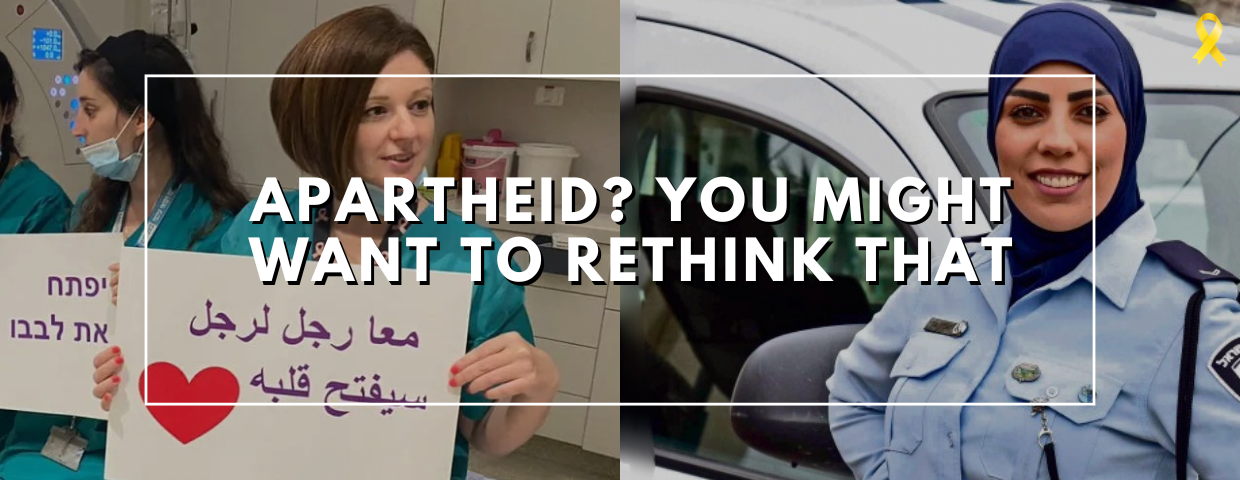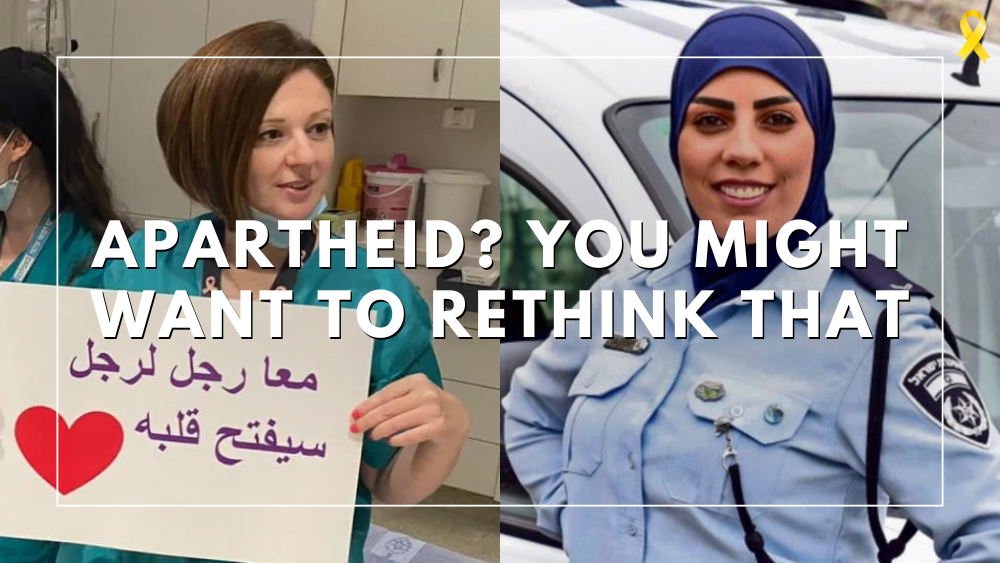
In recent weeks, we’ve dismantled some of the most dangerous lies aimed at Israel, accusations of genocide and ethnic cleansing. These aren’t just dramatic words; they’re legal terms rooted in the darkest chapters of human history. Using them recklessly isn’t activism. It’s distortion.
Now comes the next lie, gaining traction in headlines and hashtags: that Israel is deliberately starving the people of Gaza. It’s a claim designed not to uncover truth, but to inflame, to twist a defensive war against terrorism into a campaign of extermination.
And alongside it, another familiar slur is shouted from protest lines and echoed across social media: apartheid.
But let’s pause. Before the next tweet, before the next chant, ask one simple question: does the accusation actually match reality?
Step into an Israeli hospital, and you’ll see an Arab surgeon operating on a Jewish patient or vice versa. Doctors, nurses, administrators, Arab and Jewish, working side by side to save lives. Meanwhile, outside Israel, protestors call this apartheid.
This isn’t justice. It’s propaganda.
So let’s break it down with facts. Because when truth is twisted into a weapon, we can’t stay silent. The world deserves facts, not slogans. And truth deserves to be seen as it is, not as its enemies claim it to be.
Education: Not a Separate System, a Shared Future
Arab children in Israel go to schools funded by the same Ministry of Education as Jewish children. Many attend Arabic-language schools. That’s cultural accommodation, not segregation.
In 2000, only a quarter of Arab students qualified for university. By 2023, more than half did. That’s not a glass ceiling. That’s glass shattering.
On university campuses, Arabs make up nearly 20 percent of all students. And the majority of Arab students are women, studying medicine, law, technology, and more.
Healthcare: Where Arab People Are the System
In Israeli hospitals, 20 percent of doctors are Arab. Over a quarter of pharmacists. Nurses, EMTs, surgeons, administrators. Arab professionals aren’t just part of the system; they help run it. They care for everyone: Jews, Arabs, tourists, anyone who walks through the door.
That’s not a glitch in the system. That’s how the system works.
Tech and Startups: From Underdogs to Engineers
Once nearly shut out of Israel’s high-tech sector, Arab citizens are now building their place in it. With help from both government and nonprofit initiatives, Arab engineers are working at companies like Google, Intel, and Microsoft.
In Nazareth and Sakhnin, Arab entrepreneurs are launching startups that compete on the global stage.
That’s not apartheid. That’s opportunity in action.
Everyday Life: Shared Spaces, Shared Lives
Jewish and Arab citizens commute together, shop together, work together. They teach at the same universities. Sit on the same medical teams. Collaborate in the same tech labs.
Mixed cities like Haifa, Lod, and Jaffa are not fiction. They are everyday life. Not perfect, but real.
If this is apartheid, it’s the kind where neighbors argue over who makes the best hummus.
Politics: Voting, Speaking, Governing
Arab citizens of Israel vote in every election. They serve in the Knesset. In 2021, an Arab political party joined the governing coalition, a first in Israeli history.
Local Arab mayors govern cities, manage budgets, oversee schools, and lead development. They do so with billions of shekels in targeted government investment.
Apartheid? Or democracy, messy, imperfect, but real?
The Bottom Line
Is Israeli society perfect? No. Is there discrimination? Yes, even among the Jewish people themselves. Like in nearly every diverse democracy in the world, Israel grapples with internal tensions and inequalities. But calling it apartheid isn’t just wrong. It insults the memory of those who actually lived under true apartheid regimes.
The truth is more complex. It doesn’t fit neatly on a protest sign. But it matters.
Arab citizens of Israel aren’t living under apartheid. They are shaping the country in classrooms, courtrooms, hospitals, startups, and city halls.
Maybe it’s time to retire the slogans and start listening to the facts.

